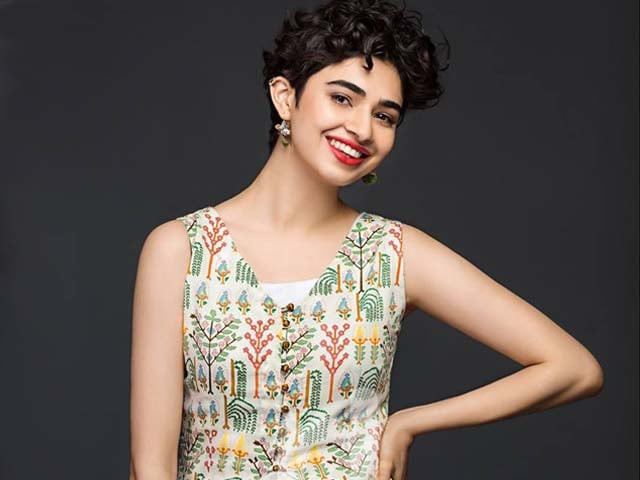https://www.facebook.com/fahadcitrus/posts/10155635850424451
To put an end to all the derogatory comments on her photos, Khattak recorded a live video and addressed all the haters directly. She spoke about the double standards of people, and how they pretend to empower women on one hand and bring them down the next chance they get. She further spoke about the need to educate people in our society and teach them not to constantly comment over someone’s appearance.
https://www.facebook.com/saheefa.khn/videos/10214356668098479/
The question arises, why does the removal of a few inches of hair become a sacrifice? In society’s eyes, she apparently sacrificed her ‘femininity’ to transform herself into a macho woman, only to be labelled a lesbian or a transvestite. Physically, the long curly locks would weigh her down during the humid Pakistani summer. But in a society like ours, the locks ‘veiled’ her from these harsh and unsolicited judgements.
Being a short-haired Pakistani woman myself, this commentary is not appreciated. I cut my hair earlier this summer, and upon my arrival back home from the hairdresser, I was greeted by Khursheeda. Khursheeda has been a member of my family since before I was born, and I regard her as a second mother. Her common tender welcomes seemed slightly distant, when I asked why, she responded,
“Why did you cut your hair? You look like a boy, who will marry you?”
To this I responded,
“Why do a few inches determine what lies ahead, isn’t there more to me than my hair?”
To unravel the importance of length, we must explore its roots. Throughout history, long hair has been an everlasting symbol of femininity. If we revert back to the evolutionary basics, it is viewed as a sign of fertility, for to have long hair the woman must be healthy and thus fit to bear a child.
However, these references date back to a few centuries ago. Social and cultural norms continuously evolve as society progresses but since hair holds such an importance in our society, it reflects how socially undeveloped we are. This stems back to the fact that the majority of women in our society are married off by the tender age of 18, withholding them from opportunities to be self-sufficient.
“Rapunzel, Rapunzel, let down your long hair!”
A hair stylist today would take one look at Rapunzel’s hair and immediately say,
“Well, of course, those are hair extensions, and she must have spent a fortune on them!”
These luscious locks come with a price and require high maintenance, so you’ve got to be prepared. From blow dries, hair colouring to styling tools, women pour money into perfecting another aspect of their looks because of the importance ascribed to them.
Clearly, the men hold the scissors in this relationship. A woman’s attractiveness is measured in relation to how desirable a man would find her. In contrast, the length of a man’s hair proves no hindrance to his masculinity. Evidently, short hair is the assumed norm for most men but fictional male characters with long hair embody a courageous and almost superhuman role.
A defining characteristic for Thor from Norse mythology, also known as ‘the protector of mankind’, is his long blonde hair. Similarly, the famous animated Disney film Tarzan revolves around a feral child raised to fulfil the role of ‘the king of the jungle’ who has long black hair. Neither of these characters are demeaned for being ‘feminine’. In fact, they are awed for being extra-masculine. In relation to modern society, a new trend for most males is to grow out their hair and rock the ‘man bun’ and everyone seems to be okay with that too.
Thus, why is there a continuous commentary on peoples’ personal choices that harm no one? Why is there this unhealthy fixation on looks which can lead to worse health problems? Where do our society’s priorities lie, in belittling our women to focus on their exterior, or in empowering them to embrace their beauty in any way they desire? We’re told to never judge a book by its cover, so why judge a person for their choices?



COMMENTS
Comments are moderated and generally will be posted if they are on-topic and not abusive.
For more information, please see our Comments FAQ